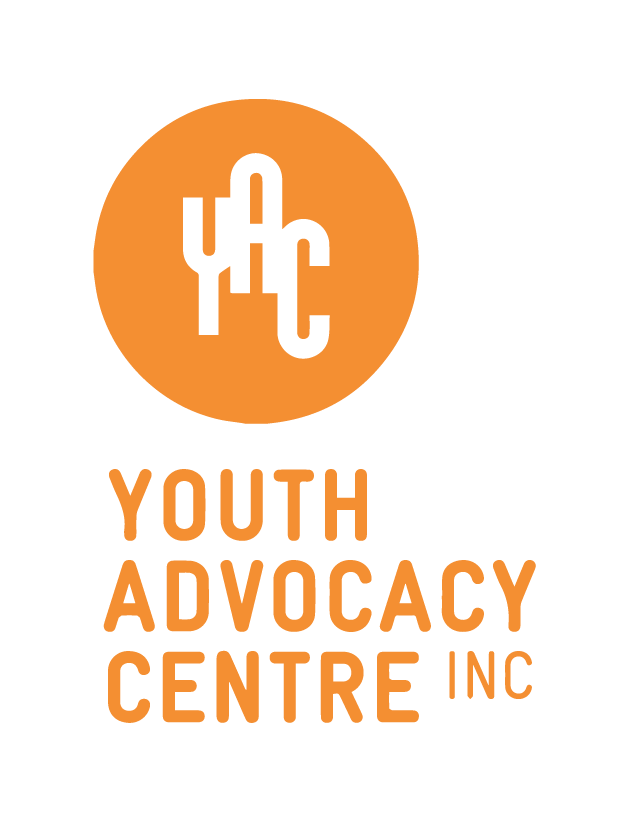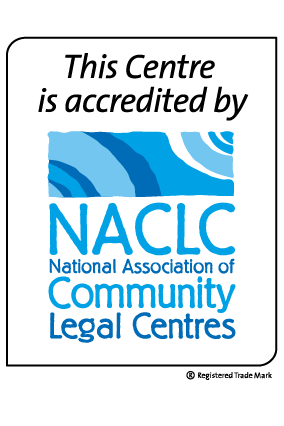Victim of a Crime
Information regarding being a victim of a crime.
Who qualifies as a victim?
There are different types of victims of crimes. The main types are as follows:
- Primary victims are those who are directly injured by the crime (for example you were assaulted while at the shopping centre)
- Secondary victims are those who are injured because of witnessing a crime (for example developing anxiety)
- Parent secondary victims are parents who have been injured as a result from violence against their child (for example the parent becomes depressed)
- A related victim is a close family member of a primary victim and suffered an injury (for example the son of a father suffers a trauma related injury).
Am I eligible for compensation?
If you fall into one of the above categories and suffered physical or psychological harm you may be eligible for some assistance from the government for any harm you have suffered. For more information on whether you qualify, it is best to speak to a lawyer or call Legal Aid Queensland for free legal advice on 1800 651 188.
For victims under the age of 18, you will have 3 years after the day you turn 18 to make an application for compensation.
Victim of Sexual Assault
Sexual assault (including rape and incest) is against the law. You have the right to feel safe and protected. Seeking support can be difficult but getting information from someone you trust may help you decide what you would like to do.
What happens if I tell someone?
It is your choice whether to tell someone what has happened to you. You don’t have to report a sexual assault to the police.
BUT there is a law which says that if an adult believes you have been the victim of a sexual offence (like a sexual assault or rape) then the adult must tell the police. They also have to do this if you have a conversation with any adult and tell them about sexual activity you have had while you were under 16 with another adult (someone 18 or older) even if you agreed.)
If you tell a person from Child Safety Services or the police about the sexual assault then they must investigate it. If you are under 18, need medical treatment and the doctor believes you have been sexually assaulted, then they must tell the police or Child Safety Services. Any medical report may be important later to support your story if the matter goes to court. You do not have to answer questions or give any information to anyone if you do not want to. A doctor cannot refuse to treat you because you do not give full details of what happened and who was involved.
It is important to look after yourself by seeing a doctor as soon as possible for things like STIs, pregnancy and your general health.
If a teacher reasonably believes a child at the school has been sexually abused by another person, they have to report it to the principal who must report it to the police. If Office of the Public Guardian (OPG) is told about any abuse they must pass the information on to the police and Department of Child Safety.
If you tell a youth worker or any adult of any sexual offence that occurs when you are under 16 by an adult, they must report it to police. Call one of the agencies under ‘Who can help?’ if you are unsure who to trust.
What happens if a sexual assault is reported?
If you have questions about what happens if you report an assault contact one of the agencies under ‘Who can help?’ before you report it. The steps below give you an idea of what happens if a sexual assault is reported to the police or Child Safety Services:
- You make a complaint/ask for help
- You are interviewed by police (usually videoed) or a Child Safety Services officer
- Police gather other evidence (for example, medical report, other witnesses). The police or Child Safety Services may ask you to undergo a medical examination
- The person you say assaulted you is interviewed by police (the person can refuse to be interviewed)
- Police or Child Safety Services make a decision about what should happen next:
- if the police believe there is enough evidence to show that the person has broken the law, the person is charged and is taken to court
- if Child Safety Services believes you are not being cared for or you are not safe from further harm they may take out a Child Protection Order (which means that Child Safety Services may become your guardian and make decisions about you).
Reporting a sexual assault can be difficult as it will mean you will have to talk about what has happened to you in detail to people you do not know. You will need to think about what going to court will mean for you. It is important to know your rights. If you report the assault, you may not be able to control what happens and decisions may be taken out of your hands.
Do I have to have a medical examination?
No. But sometimes the police may want you to have a medical examination, to gather evidence for the police and the case. This is your decision. If you say no, the police may not be able to take the offender to court because there may not be enough evidence.
A court can order a medical examination if Child Safety Services is assessing whether you are at risk of further harm and a Child Protection Order should be taken out. You should get your own legal advice if this is happening to you.
What happens if I change my mind?
If you change your mind about going to court you can ask the police for a ‘Withdrawal of Complaint’ form. This form should be completed as soon as possible. It is a police decision whether to drop your case. This may depend on a few things such as whether they have completed their investigations into your case and have found enough evidence to continue to court. The police will not necessarily drop the case because you no longer want to go to court. If you change your mind it is a good idea to contact one of the agencies under ‘Who can help?’ to support you in telling the police your decision.
What about court?
If the police decide that there is enough evidence, the case will be taken to court. If the case is not taken to court, it is because the police do not have enough evidence. This does not necessarily mean that the police do not believe you.
Will I have to be a witness at court?
If you are the victim of the offence and the alleged offender (defendant) says they are not guilty, it is very likely you will have to give evidence to the court. If you are under 16, your statement will be recorded on video. This will be used as your evidence at the committal (the initial court proceedings). It will also be used as your evidence at the trial. The lawyer for the defendant can still ask you questions at a pre-trial hearing (the pre-recording), however there are rules about the type of questions that they can ask. It is also possible to give evidence through an audio-visual link and not actually be in the Court room. If this option is not available, then you are entitled to give evidence from behind a screen, so you do not have to see the defendant.
Being a witness can be difficult because you have to say what happened to you and answer questions from the alleged offender’s lawyer. Court can take a long time and the offender may be found not guilty. This does not necessarily mean that the court did not believe you.
Will I need to prepare a victim impact statement?
You may need to consider preparing a victim impact statement. A victim impact statement is where you can explain how the crime has affected you (for example the physical, emotional and financial impacts of the crime). It is a written statement that can include things like a medical report or letter from your counsellor. Sometimes the court may want to ask you questions about anything you have included in your victim impact statement. Often other people affected by the crime, such as your parents, are also able to submit a victim impact statement. The Court can consider the information that you have provided into account during sentencing of the offender.
Who can help?
If you want help or advice, you should call and have a confidential chat to someone at one of the agencies below. You do not need to give your name or address.
Who can help?
Youth Advocacy Centre (YAC) www.yac.net.au ………………………….. 3356 1002
Hub Community Legal www.communitylegal.org.au……………………. 3372 7677
Zig Zag Young Women’s Resource Centre www.zigzag.org.au………………………………………………………… 3843 1823
Victim Assist Queensland https://www.qld.gov.au/law/crime-and-police/victims-and-witnesses-of-crime:// ……………………………………………………….1300 546 587
Kids Help Line ………………………………………………………………1800 551 800
Women’s Health Centre: Brisbane……………………………………………………………………..839 9988 Queensland wide…………………………………………………………..1800 017 676
North Qld Combined Women’s Services……………………………………………………………………….4775 7555 24 hr North Queensland only …………………………………………………….1800 657 501
Women’s Health Centre (West Moreton) ……………………………….3812 0138 24hr Sexual Assault Response Line …………………………………………….3202 2766
Rockhampton Rural Areas only ……………………………………………1800 017 382
Immigrant Women’s Support Service …………………………………………3846 3490
Translating & Interpreting Service (24 hr) ……………………………………131 450
Community Legal Centres (CLCs) see www.naclc.org.au for your nearest CLC
Browse other legal topics
This sheet is intended to provide general legal information about the law in Queensland. This information is not legal advice. If you have a particular legal problem you should contact a solicitor for legal advice. Below is a list of agencies that might be able to assist you, including legal agencies.
This sheet was last reviewed and updated in July 2023. The Youth Advocacy Centre does not accept responsibility for any action or outcome because of anyone relying on the information provided.
Follow Us
Follow us on social media for information on laws, youth rights, and news.
Contact YAC
Street address: Level 4, 16 Peel Street, South Brisbane Q 4101
Mailing address: Level 4, 16 Peel Street, South Brisbane Q 4101
Tel: (07) 3356 1002
Bussiness hours: 9am - 5pm, Mon - Fri

If you need urgent assistance outside of these hours:
- Youth Legal Advice Hotline 1800 527 527 (Mon to Thurs 8am - 9pm, Friday 8am to Sunday 5pm)
- Kids Helpline 1800 551 800 (24/7, 365 days per year)
- Lifeline 13 11 14 (24/7, 365 days per year)
- Homelessness Hotline 1800 474 753 (24/7, 365 days per year)
- If you are over 18, and seeking access to Mental Health Services in Queensland, Acute Care Team on 1300 MHCALL (1300 64 2255).


